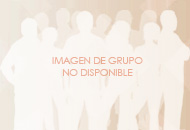
Campus Moncloa
Campus of International Excellence
Materials Technology and Environment
Main research lines
- Analytical methodologies for the study of environmental samples
Objetives: This research line is focused on the development of analytical methods for the determination of metals and their species in environmental samples. The methods developed allow us to study the mobility and bioavailability of metals in soils, as well as their bioaccumulation in terrestrial plants and marine algae. In the case of arsenic, speciation analyses are carried out due to the different toxicity of the arsenic compounds. Regarding polluted soils remediation, arsenic resistance of plant-microbes association is studied as a tool to restored contaminated environments. - Sustainability in Civil Infrastructures
Objetives: This research line includes de development of a sustainability index considering the life cycle stages of civil infrastructure projects. The aim is to develop a methodology that allows to identify, prioritize and select the indicators and variables more influential in order to obtain an objective index to compare alternative designs. Multicriteria methodologies are applied to evaluate the sustainability indicators in their economic, environmental and social dimension along the life cycle project stages, assessing both qualitative and quantitative indicators. - Asset Management in Infrastructures
Objetives: The work carried out under this line includes the development of methodologies for the inspection and survey data collection of all types of assets in Infrastructures. Methods of integration in real time of parameters such as corrosion of reinforcement in bridges, settlements with satellite detection techniques, etc. In this line and in a complementary way, all the investigations aimed at optimizing the conservation and maintenance of infrastructures that contemplate a reduction in the emission of gases harmful to the environment into the atmosphere are considered, as well as different perspectives of risk management for mitigate socio-economic effects of great impact. - Methodologies for the analysis of construction risks
Objetives: Under this research line, risk, exposure, dangerousness, and vulnerability studies, originated by and during the construction process, exploitation, conservation and maintenance of public works, are carried out. Their effects on the population and the environment are also analyzed. These studies allow us to design the analysis, control and mitigation strategies of construction risks in the different phases of the life cycle of public works, focusing mainly on their preventive and innovative nature. - Advanced Materials for Civil Engineering: Nanoparticles and Recycled Materials
Objetives: This research line is devoted to the sustainability studies related to the utilization of recycled materials (such as glass, rubber, fly ash from municipal solid waste incinerators (MSWI), etc.) to be used in construction materials. Characterization of construction materials modified with nanoparticles and manomaterials are also carried out. - Data science, digital innovation and computer science applied to Civil Engineering and the Environment
Objetives: In this line of research, new technologies are applied to civil engineering and the environment, based on activities related to the following areas: (1) Data science, capture, optimization, classification and analysis of data, analysis divided into its four typologies-Descriptive Analytics, Diagnostic Analytics, Predictive Analytics and Prescriptive Analytics. (2) Digital innovation, search for digital tools for innovation and improvement of the current model. (3) Computer science, inclusion of mathematical models for the systematic study of the algorithmic processes generated that describe and transform information.

Head:
María Angeles Quijano Nieto
Keywords:
Environment.
Nanoparticles.
Pollutants.
Metal Analysis.
Building materials.
Data science.
Construction risks.
Sustainability.
News of the cluster
